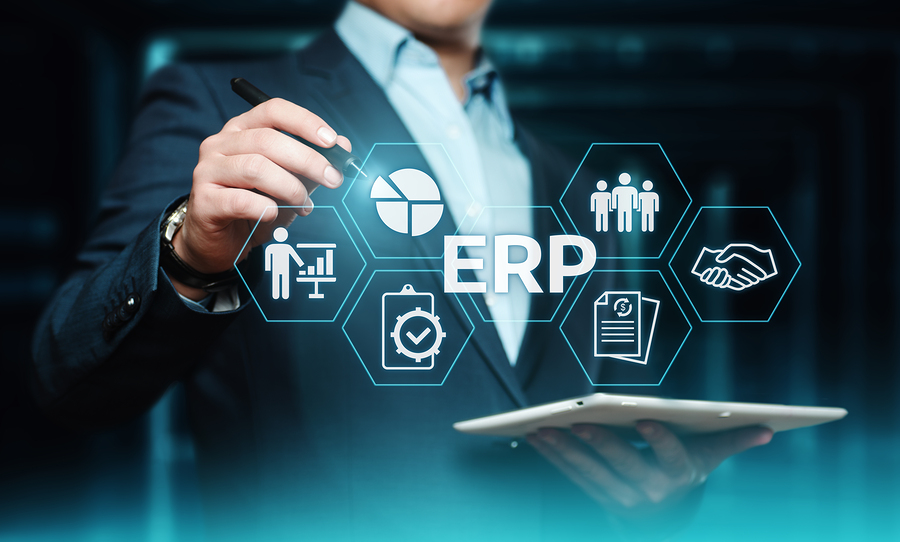Some Important Points to Remember about ERP System:
- One of the most essential features is thorough departmental analytics and reporting. Finance, manufacturing, inventory and order management, customer communication, sales and marketing, project management, and human resources are all integrated into Enterprise Resource Planning systems.
- ERP may save a lot of time and money by offering organization-wide insight that highlights waste procedures and shows possibilities for development.
- Before choosing a winner, businesses should understand the capabilities, implementation approaches, integration needs, and total cost of ownership of a shortlist of providers.
- ERP software is available in a variety of deployment types, including on-premises, cloud, and hybrid. While cloud ERP has grown in popularity in recent years, the ideal option depends on the organization's demands.
Why Is Enterprise Resource Planning (ERP) Important for Businesses?
Enterprise Resource Planning (ERP) software is used to manage various company processes, but how does it differ from other options? Despite the fact that ERP has aims comparable to those of different systems, its unique characteristics set it apart in the software industry. Each business should evaluate the relevance of Enterprise Resource Planning (ERP) systems for the following six reasons.
1. Increased financial savings
According to one research, an ERP may cut overall operating expenses by 23 percent and administrative expenditures by 22 percent on average. That's a huge time-saving. While operational savings may be compelling to investigate ERP adoption, good ERP solutions may accomplish much more.
2. Business functions are centralized, and process times are shorter.
ERPs are easy-to-use systems that integrate, standardize, and automate company operations across the board, from customer service to accounting, inventory and supply chain management, invoicing and payment, and everything in between.
3. Management of Inventory and the Supply Chain
Manufacturing firms are leading the way in ERP adoption, but ERP efficiency may benefit any organization. One method is to take a closer look at your supply chain and have a better knowledge of the extent of your inventory.
4. Customer relationship management has improved (CRM)
The finest ERPs assist businesses in consolidating all of their client data into a single database. This unified records system allows companies to monitor their client contacts, including emails and phone calls, orders, invoicing, payment receipts, and customer feedback. So it integrates your customer relationship management (CRM) database, providing you a complete picture of your customers' needs regardless of where they are in the buying process.
5. Enhanced Productivity
Your most time-consuming processes can be automated with an ERP. The database in ERP software saves time-consuming processes like data input and allows the system to execute complex computations in seconds. This frees up time for your team members to conduct more deliberate work, boosting your labor ROI. ERP improves your company's production, efficiency, and profitability as a result of this.
6. Improved Resource Management and Production Planning
ERP also handles production in addition to inventory management. ERP offers visibility into all production processes, including shop floor activities. This allows users to maximize capacity by optimizing production schedules, equipment, and workforce.



-1748399375.png)

-1742456856.png)

 (19)-1723771883.png)
 (17)-1721953744.png)